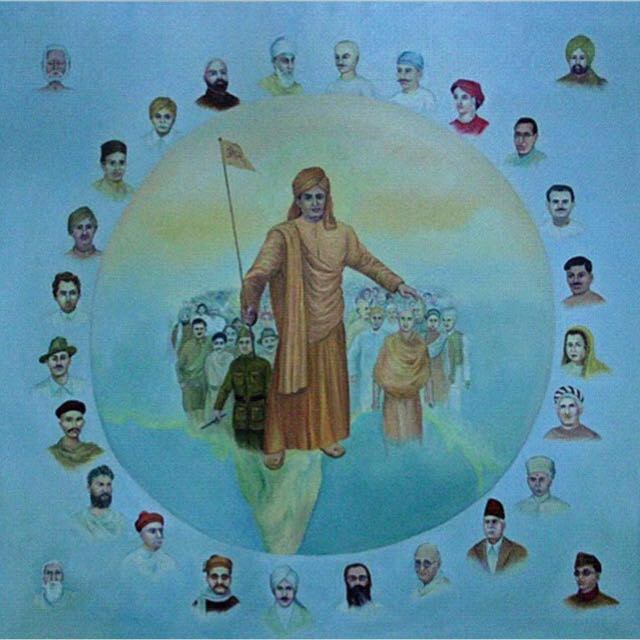About Us
The Sanskrit word Arya means a person whose actions are noble and Samaj means society. Arya Samaj was founded in 1875 as a Society of Noble Persons in Mumbai India with the goals of promoting One God, the Vedas and their true teachings, and for the selfless service to the community. Maharishi Swami Dayanand Saraswati was its founding leader. The motto of Arya Samaj is Krinvanto Vishvam Aaryam make the whole world noble.
Greater Dallas Arya Samaj is a 501(C)(3) Non-profit organization that is working on teaching and promoting the Vedic way of life.

Arya Samaj is a reformist Hindu movement founded by Swami Dayananda Saraswati in the late 19th century. The principles of Arya Samaj are based on the Vedas and advocate for social justice, education, and the upliftment of society. Donating to causes aligned with Arya Samaj values can be motivated by several reasons:
- Promotion of Education: Arya Samaj places a strong emphasis on education. Donations may support educational institutions or initiatives that provide quality education to all, irrespective of caste, creed, or gender, aligning with the movement’s commitment to knowledge dissemination.
- Social Welfare and Upliftment: Arya Samaj is committed to the welfare and upliftment of society. Donating to causes such as healthcare, poverty alleviation, and social development reflects a commitment to these values and contributes to building a more just and equitable society.
- Advocacy for Gender Equality: Arya Samaj has historically advocated for gender equality. Contributions to initiatives that empower women, promote gender justice, and address issues related to gender discrimination align with the movement’s principles.
- Religious and Cultural Preservation: Donations may be directed towards the preservation and promotion of Vedic and Hindu culture, traditions, and values. Supporting initiatives that aim to preserve and propagate the teachings of the Vedas can be a way to contribute to the cultural heritage emphasized by Arya Samaj.
- Support for Social Reform: Arya Samaj has been a proponent of social reform and the elimination of social evils. Donations may go towards supporting efforts that address issues such as caste discrimination, untouchability, and other social ills, in line with the movement’s commitment to social justice.
- Humanitarian Causes: Arya Samaj encourages its followers to engage in philanthropy and humanitarian work. Donating to charitable causes that alleviate human suffering, provide disaster relief, or support vulnerable populations aligns with the movement’s call for compassionate action.
- Environmental Conservation: Arya Samaj recognizes the importance of environmental stewardship. Contributions to initiatives that promote environmental sustainability and conservation can reflect a commitment to the movement’s holistic worldview.
Individuals may choose to donate based on Arya Samaj values as a way to express their commitment to social reform, education, and humanitarian causes in alignment with the principles outlined by Swami Dayananda Saraswati and the Arya Samaj movement.
Donating based on Vedic values is rooted in the principles and ethical teachings found in Vedic scriptures, which are ancient Indian texts that form the foundation of Hindu philosophy. There are several reasons why individuals may choose to donate based on these values:
1. Dharma (Duty and Righteousness): In Vedic philosophy, individuals are encouraged to fulfill their duties (dharma) and act in a righteous manner. Donating is seen as a way to fulfill one’s duty to support and uplift others in the community.
2. Karma Yoga (Path of Selfless Service): The concept of Karma Yoga emphasizes selfless action and service without attachment to the results. By donating based on Vedic values, individuals engage in selfless service, contributing to the well-being of others without expecting personal gain.
3. Compassion and Ahimsa (Non-Violence): Vedic values emphasize compassion and non-violence. Donating to charitable causes, especially those that alleviate suffering and promote well-being, aligns with the principle of ahimsa.
4. Seva (Selfless Service): Seva is the concept of selfless service to others. Donating is considered a form of seva, where individuals contribute their resources, time, or skills to benefit others without seeking personal recognition or reward.
5. Caring for the Less Fortunate: Vedic values emphasize empathy and caring for those who are less fortunate. Donating to causes that support education, healthcare, poverty alleviation, and other humanitarian efforts reflects a commitment to uplift the vulnerable members of society.
6. Creating Positive Energy (Punya): The concept of punya in Vedic philosophy refers to positive energy or merit earned through virtuous actions. Donating is considered a virtuous act that generates punya and contributes to one’s spiritual well-being.
7. Building a Harmonious Society: Vedic values promote the idea of a harmonious and interconnected society. By supporting charitable causes, individuals contribute to the overall well-being of the community and help build a more harmonious and compassionate society.
It’s important to note that while these principles have their roots in Vedic philosophy, the values of compassion, selflessness, and community support are universal and can be embraced by individuals from various cultural and religious backgrounds. Donation based on Vedic values is one way to express these timeless principles in a contemporary context.